Co-creation of New Urban Living: Advancing Quality of Life in the Climate Change Era
Jakarta & Surabaya, Indonesia
Oct 20-28, 2024
Organized by CSEAS, Kyoto University | Supported by DAIKIN Industries, Ltd.
Co-organized by Operations for Habitat Studies | CeCUR, UNTAG Surabaya
Organized by CSEAS, Kyoto University
Supported by DAIKIN Industries, Ltd.
Co-Organized by Operations for Habitat Studies
and CeCUR, UNTAG Surabaya
Report
Center for Southeast Asian Studies (CSEAS), Kyoto University organized 48th Southeast Asia Seminar titled “Co-Creation of New Urban Living: Advancing Quality of Life in the Climate Change Era” in Jakarta and Surabaya, Indonesia, from October 20 to October 28, 2024. It was sponsored by DAIKIN Industries, LTD, and co-organized by Operations for Habitat Studies (OHS) and Center for Climate Change and Urban Resilience (CeCUR), University of 17 Agustus 1945 (UNTAG), Surabaya.
The primary purpose of the seminar was to discuss and share the ideas and policies for new styles and modes of urban living and housing in tropical and subtropical Southeast Asia that have disproportionately suffered from the negative impacts of the global climate change and escalating temperatures. Our invited speakers comprised experts and advisers from various fields such as architecture, air-conditioning, energy science, and national and local government officers in related fields.
We received 103 applications from fifteen countries and accepted eighteen as participants. They were from different backgrounds. Some are from various academic disciplines, and others are from the local and national governments or private sectors. Many were Indonesian, but some joined from other Southeast Asian countries. Three staff members from DAIKIN Industries, LTD also participated in the seminar. The participants were divided into five groups comprised of different backgrounds. Besides listening to the lectures’ presentations, each group conducted its own field research and intensive discussion among the group members. On the final day, they made group presentations on the feasible program or policy for the desirable and comfortable living in urban communities by combining passive and active cooling in front of the policy makers and professors.
The participants’ satisfaction was high (95.2%). The programs or policies proposed by the groups were fascinating and inspiring. Group 1 emphasized the importance of bottom-up urban planning to achieve thermal justice for everyone. Group 2 proposed the creation of a comfortable microclimate and pointed out the importance of the relationship between smell and comfort. Group 3 introduced the integrated use of passive and active cooling at the community level by creating a green canopy at the alleys and installing an AC-installed community building. Group 4 proposed renovating and reinvigorating the historical community building by combining passive and active cooling in a poor urban community. Group 5 proposed revising the local government’s community assessment program by incorporating the urban heat problems and suggested the introduction of a mobile portable AC carrier for those suffering from the urban heat. These ideas were born after seven days of discussions and cannot be implemented quickly. Still, they became valuable inputs for the ongoing CSEAS-DAIKIN collaborative research project on co-creating future urban living and housing in Indonesia and beyond.
Masaaki Okamoto
Chair/Professor
CSEAS, Kyoto University
Participant Report
After the seminar, the participants reflected on their experiences and new knowledge obtained from the seminar through both group and individual reports.
GROUP REPORT
INDIVIDUAL REPORT
Combating Urban Heat through Collective Action and the Urban Commons
Imam Supratiko (Rujak Center for Urban Studies)Potential Advantages of Combining Public Space and Technology for Climate Resilience
Ima Yusmanita (University of 17 Agustus 1945 Surabaya)Cool is Good – Putting Heat Health on the Agenda
John Andrew Camposano (Western Visayas Medical Center, Iloilo)Utilization of Remote Sensing to Monitor Urban Development and its Environmental Impacts
Nurwita Mustika Sari (University of Indonesia)
GROUP REPORT
INDIVIDUAL REPORT
Rethinking Urban Heat Mitigation: DIY as a Medicine for Technology Fever
Alpraditia Malik (Ritsumeikan University)The Future of Urban Housing in Southeast Asia: Integrating Green and Blue Infrastructure with Energy Efficiency for Climate Resilience and Quality of Life
Khurniaty Dewi (Ministry of National Development Planning Indonesia)Climate Change Adaptations in Residential Areas: Working toward Energy-Efficient and Climate-Resilient Cities through a Co-Creation Approach
Sylvia Zahara (Kyoto University)“Do you smell the community?”: The Stinkiness and Sacredness of Kampung Kota
Piyathep Tanmahasmut (Chulalongkorn University)Andy (Daikin Industries Indonesia)
GROUP REPORT
INDIVIDUAL REPORT
Shared Housing and a District Passive Cooling System to Improve Urban Village Conditions
Sally S. Napitupulu (Universitas Kristen Indonesia)Developing Strategic Plans to Manage the Social Determinants of Health in the Face of Climate Health Threats in the Kampungs of Surabaya, Indonesia
Thanakom Wongboontham (Policy Research and Development Institute Foundation)Achieving Thermal Comfort in Kampung Kota
Rian Wulan Desriani (Ministry of Public Works)Combating Thermal Injustice and Improving Air Quality through Collaboration
Michael Budiman (Daikin Industries Indonesia)
GROUP REPORT
INDIVIDUAL REPORT
Urban Heat, Social Realities, and Community-Centered Solutions: Reflections on the 48th Southeast Asia Seminar
Benigno Balgos (Ateneo de Manila University)Designing energy transitions with urban kampung participation: Insights from the 48th Southeast Asia Seminar
Pratama Yudha Pradheksa (Rensselaer Polytechnic Institute)The Urban Need for Green Spaces: Carbon, Heat Islands, and Community Solutions
Tungga Dewi Hastomo Putri (Javan Wildlife Institute)Notes from the SEAS: The Conditions of an Airconditioned Future
Jonah Leigh E. Ramos (De La Salle University)
GROUP REPORT
INDIVIDUAL REPORT
A combined approach to create thermal justice for urban residents
Nimas Maninggar (National Research and Innovation Agency Indonesia)Building Urban Climate Resilience in Kampungs: A Reflection on the 48th Southeast Asia Seminar
Prisca Bicawasti Budi Sutanty (Shirvano Consulting)Rethinking Urban Space in Surabaya
Timothy Joseph G. Henares (Asia Society Philippines)How to Cool Kampung: Findings from the 48th Southeast Asia Seminar
Miharu Uchiyama (Daikin Industries, Ltd.)
Seminar Snapshots
BRING IDEAS TO LIFE
CSEAS has been collaborating with DAIKIN Industries in an industry-academia joint research program since April 2021 We conduct this year’s Southeast Asia Seminar as part of the program.
One of the main objectives of the seminar is to integrate and apply the proposals, ideas, and discussions from the seminar, with the goal of translating them into practical implementation in society.
For those interested, we also hope to continue our collaboration in the future to bring the ideas discussed in the Seminar to life.
Please carefully review this year’s Call for Applications and Concept.
CSEAS x DAIKIN Industry-Academia Collaboration Program
Concept
Global climate change and escalating temperatures disproportionately affect tropical and subtropical Southeast Asia (SEA). Coupled with rapid urbanization and the urban heat island effect in the already hot and humid climate, such increasing heat stress elevates risks of disasters and health issues for SEA inhabitants, especially the most vulnerable, such as the elderly and infants. We must urgently imagine, create, and build new styles and modes of urban living and housing together.
Looking back on the past, “Open-type dwellings” for residential houses were quite common across various regions. Natural breezes came into the high-ceiling houses, lowering the temperature, and the openness enhanced communication within urban communities. Passive cooling was the norm then. But now, more than passive cooling is needed to guarantee the comfort of living in a densed and hotter urban environment. Installing more than one electric fan is a norm for lower-middle and lower-class housing with few ACs in urban village areas called Kampung or squatter areas. The upper and rising middle classes tend to choose “closed-type dwellings” with ACs for safety and privacy, weakening the neighborhood’s sense of community.
Continuing urbanization and exacerbating global warming might accelerate the spread of these middle-class tailored housing all over Southeast Asia in ten years. This would endanger the resilient community network and counter the worldwide effort to achieve zero carbon emissions. Mass production of ACs at factories and mass utilization of ACs at home cause severe carbon emissions, significantly contributing to global warming. It is time for us to ponder critically upon the relevance and sustainability of keeping and expanding this spread and to foster a new urban habitat where people can enjoy quality living while upholding their cultural and communal values amid the challenges of climate change. Well-ventilated open-type dwellings might rekindle and strengthen the sense of community among the urban residents and contribute to advancing carbon-zero urban society.
In this seminar, in addition to experts in architecture and air conditioning, experts in energy-related fields and government and municipal authorities will be invited to discuss creating a new and innovative housing and air-conditioning value and culture suited to the world’s heating climate of tropical and subtropical regions. We strongly aim to compile recommendations that will lead to their societal implementation.
The following are key areas to be examined during the Indonesian fieldwork.
- • Suitable architecture and air conditioning model in Southeast Asia in the Carbon Neutral era
- • Possible combination of passive cooling and air conditioning in the development of heat islands
- • Comfortable thermal living environment in the development of global warming
- • Value and norm creation for sustainable urban life in tropical and subtropical areas
Program
Day 1
Jakarta
Arriving in Jakarta
Day 2
Jakarta
Welcome Remarks
- • Fumiharu Mieno
(Director, CSEAS Kyoto University)
Introduction to the 48th Southeast Asia Seminar
- • Masaaki Okamoto
(Chair, CSEAS Kyoto University) - • Hiroshi Aihara
(Section Manager, Daikin Industries, Ltd.)
Lectures: Carbon Emission Reduction in Indonesia
- • Anna Amalia
(Senior Planner, Directorate of Environment, Ministry of National Development Planning) - • Anindita Satria Surya
(Vice President for Energy Transition and Climate Change, National Electricity Company) - • Tomohiko Ihara
(Associate Professor, Division of Environmental Studies, Tokyo University)
Field Tour: Collaborative research about climate change impacts on urban poor and community engagement methods
- • Elisa Sutanudjaja(Executive Director, Rujak Center for Urban Studies)
Welcome Dinner
Day 3
Jakarta &
Surabaya
Lectures: Energy Policy and Urban Housing Sector
- • Julie Ann de los Reyes
(Assistant Professor, CSEAS, Kyoto University) - • Dian Irawati
(Director of Settlement and Housing Engineering, Ministry of Public Works and Housing) - • Hendra Iswahyudi
(Director of New, Renewable Energy, and Energy Conservation, Ministry of Energy and Mineral Resources) - • Hayati Sari Hasibuan
(Associate Professor, School of Environmental Science, University of Indonesia)
Move to Surabaya
Day 4
Surabaya
Lecture: Urban Planning Policy in Surabaya
- • Irvan Wahyudrajad
(Head, Regional Development Planning, Research and Development Agency, Surabaya City Government)
Lecture: Energy Efficiency at Home
- • Fadel Iqbal Muhammad
(Senior Associate, CLASP)
Technical Briefing & Short Excursion in Community
- • Bintang Chairul Putra
(Director, Operations for Habitat Studies)
Group Work
Group Presentation & Discussion
Day 5
Surabaya
Lectures: Role of Architecture for Kampung and Urban Heat Island
- • Yu Sing (Akanoma Studio)
Lecture &amb; Talk Session: Why are we focussing on Kampung (Urban Settlements)?
- • Retno Hastijanti
(Executive Director, Center for Climate and Urban Resilience, UNTAG Surabaya) - • Kenta Kishi
(Dean, Graduate School of Transdisciplinary Arts, Akita University of Art)
Guidance for the Workshop Session: Transdisciplinarity toward Entangled Problems
- • Kenta Kishi
(Dean, Graduate School of Transdisciplinary Arts, Akita University of Art)
Excursion
- • Sarah Inassari
(Operations for Habitat Studies) - • Bintang Chairul Putra
(Operations for Habitat Studies) - • Pingki Ayako
(Institut Seni Tambak Bayan) - • Anugrah Rahman
(Operations for Habitat Studies)
Day 6
Surabaya
Sharing by Group: Findings and Activity Plans
Group Work
Summary of the Day & Briefing for the Next Day
Day 7
Surabaya
Group Work
Summary of the Day & Briefing for the Next Day
Day 8
Surabaya
Group Work: Project Finalization
Summary of the Day & Briefing for the Next Day
Day 9
Surabaya
Final Session
- • Presentation: Group 1
- • Presentation: Group 2
- • Presentation: Group 3
- • Presentation: Group 4
- • Presentation: Group 5
Overall Discussion & Commentary by Guests
Closing Remarks
- • Hiroshi Aihara
(Section Manager, Daikin Industries, Ltd.) - • Masaaki Okamoto
(Chair, CSEAS, Kyoto University)
Farewell Dinner
- • Miharu Uchiyama
(Market & Technology Researcher, Daikin Industries, Ltd.)
Speakers / Lecturers
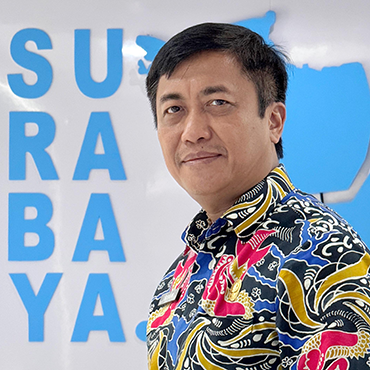
Irvan Wahyudrajad
Regional Development Planning,Research and Development Agency,
Surabaya City Government
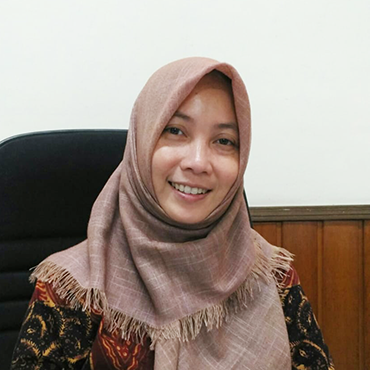
Retno Hastijanti
Center for Climate and Urban Resilience (CeCUR),Universitas 17 Agustus 1945 Surabaya
Call for Applications
(CLOSED)
The Center for Southeast Asian Studies (CSEAS), Kyoto University, welcomes applications from up-and-coming scholars who hold a Master’s degree and above, or practitioners, activists, government officers, and others who have more than two years of experience in the fields of specialization and interest relating to the seminar topic, to participate in the 48th Southeast Asia Seminar on “Co-creation of New Urban Living: Advancing Quality of Life in the Climate Change Era”. The seminar will be held in Jakarta and Surabaya, Indonesia, during October 20-28, 2024. Deadline for application is June 30, 2024.
Important Dates
- Open Call for Applications: May 17, 2024
- Application Deadline: June 30, 2024
- Result Announcement: by July 31, 2024
- Seminar Dates: October 20 – 28, 2024
Seminar Fee
- • There is no registration fee.
- • Airfares:
- • Accommodation during the seminar will be covered by the organizer.
Successful applicants will be required to cover their travel costs from their respective countries to and from Indonesia (and, where necessary, visa cost). Please note that the seminar begins in Jakarta and concludes in Surabaya. One-way flight ticket from Jakarta to Surabaya on 22nd October will be covered by the organizer.
Application Requirements
Application should be submitted online by filling out the online form. The application must include:
- • Reason for Application:
- • Curriculum Vitae
- • One writing or publication sample, or any material that describes applicant’s activities (the topic of which need not be directly related to the seminar topic).
Maximum 450 words, explaining how your background and interests relate to the Southeast Asia Seminar topic, “Co-creation of New Urban Living: Advancing Quality of Life in the Climate Change Era”. Please note that the statement will be shared among the core seminar participants.
Application deadline: June 30, 2024 (JST)
Selection
The seminar committee will select participants based on the application forms, and ONLY accepted applicants will be informed by the end of July, 2024.
Participation Requirements
Participants are required to book a round-trip flight ticket and send a copy of their e-ticket upon consultation with the secretariat office.
The format is an on-site seminar with a series of lectures and fieldwork. Participants will be divided into groups to visit various stakeholders. Participants are expected to engage in group discussions actively during the full nine-day seminar, and collaborate to make a group presentation.
Participants will also be expected to do three things:
- 1. Before the seminar (deadline is September 20, 2024)
Submit a 500 to 1,000-word paper on an issue related to the Seminar’s theme in a specific area of your choice, including discussions on stakeholders addressing or influencing the issue. Please provide citations. Based on the report, we will make a grouping. The details will be informed to successful applicants. - 2. On the last day of the seminar (October 28, 2024)
Deliver a group presentation that reflects your seminar takeaways, including insights, problems, and questions. Discuss how these lead to suggestions for improvement and encourage social implementation. The presentation format can be handwritten poster presentation, PowerPoint, video, or any expressive/demonstrative style. - 3. After the seminar (deadline is December 15, 2024)
Submit a reflection paper of the seminar, either in group or individually. A group paper should be around 3,000 words, while an individual paper can be shorter.
For more information, please see FAQ section.
For inquiries, please email <seaseminar48[at]cseas.kyoto-u.ac.jp>.
FAQ
Early-career researchers (who hold a Master degree or above), or practitioners, activists, government officers, and others who have more than two years of experience in the fields of specialization relating to the seminar topic are eligible to apply.
Yes, you are. However, in your online application, you will need to explain how the seminar topic relates to your specialization and interests.
Only successful applicants will receive an email by the end of July, 2024.
* We are unable to answer any questions regarding the selection process.
* The personal information provided in the submitted documents will be used solely for this recruitment and not for any other purpose.
* Nationality balance will be taken into consideration during participant selection.
The online application system is the only method available to apply for the seminar. If you have any special circumstances that require a different method of application, please contact us at seaseminar48[at]cseas.kyoto-u.ac.jp
No, you are not eligible to apply. Participants are expected to attend the entire seminar from October 20 to 28, 2024.
Yes, you are eligible to apply; however, preference will be given to first-time participants.
The format is an on-site seminar with a series of lectures and fieldwork. Participants will be divided into groups to visit various stakeholders, engage in discussions and make a group presentation on the last day of the seminar.
In addition to actively taking part in discussions, you are expected to give a group presentation on the last day of the seminar. Your presentation should reflect on your takeaways from the seminar, focusing on how the issues and questions discussed can generate new questions and lead to suggestions that improve the current situation and promote social implementation. Topics may include challenges and potential solutions for urban development, architecture, air conditioning, community thriving, and energy transitions in the context of climate change and societal changes in Southeast Asia. The presentation can take any format, including handwritten poster presentation, PowerPoint, video, or expressive/demonstrative.
The seminar will be conducted in English. An English interpreter will accompany each group during the fieldwork.
Southeast Asia Seminar
The Southeast Asia seminar has been held annually by the Center for Southeast Asian Studies, Kyoto University since 1977. For more information on the long history of the Southeast Asia Seminars, please visit our website

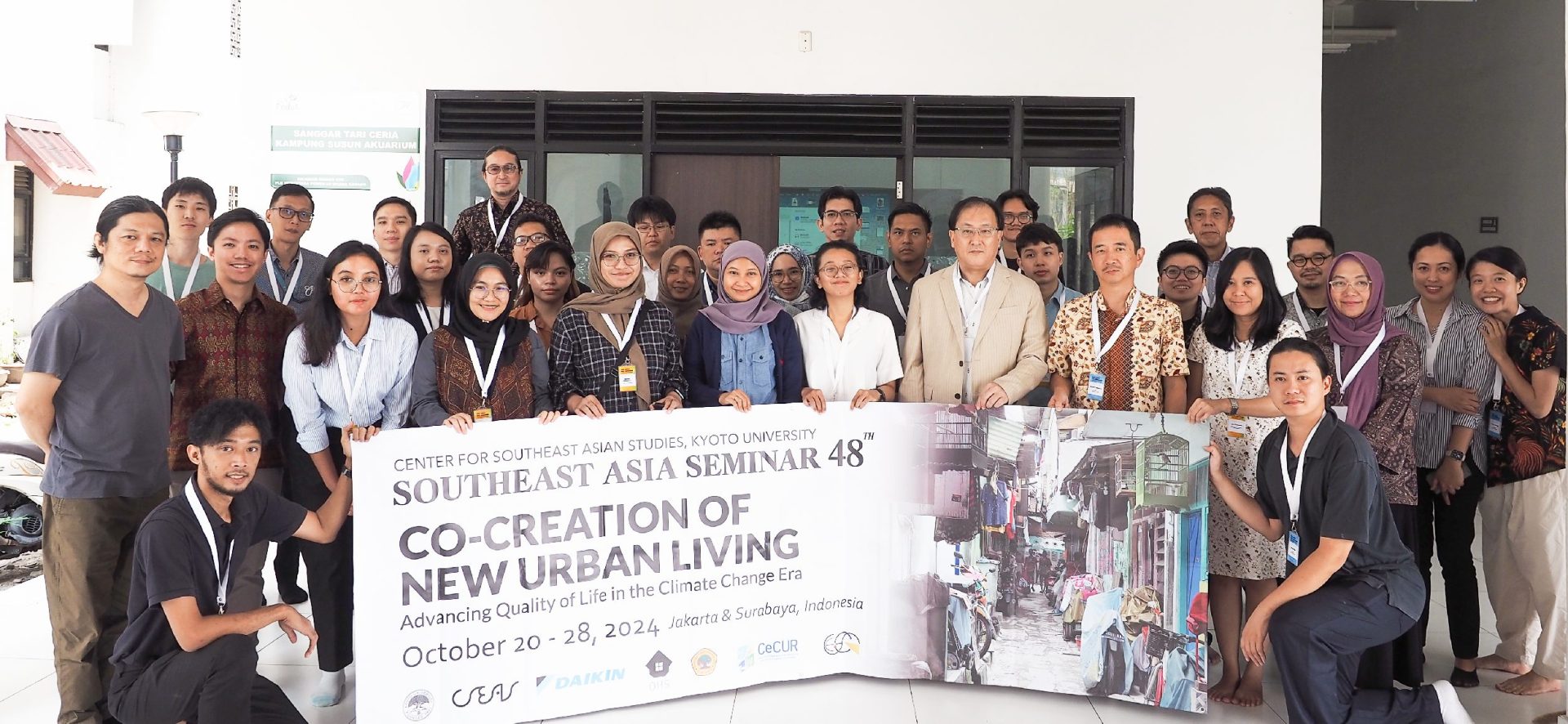
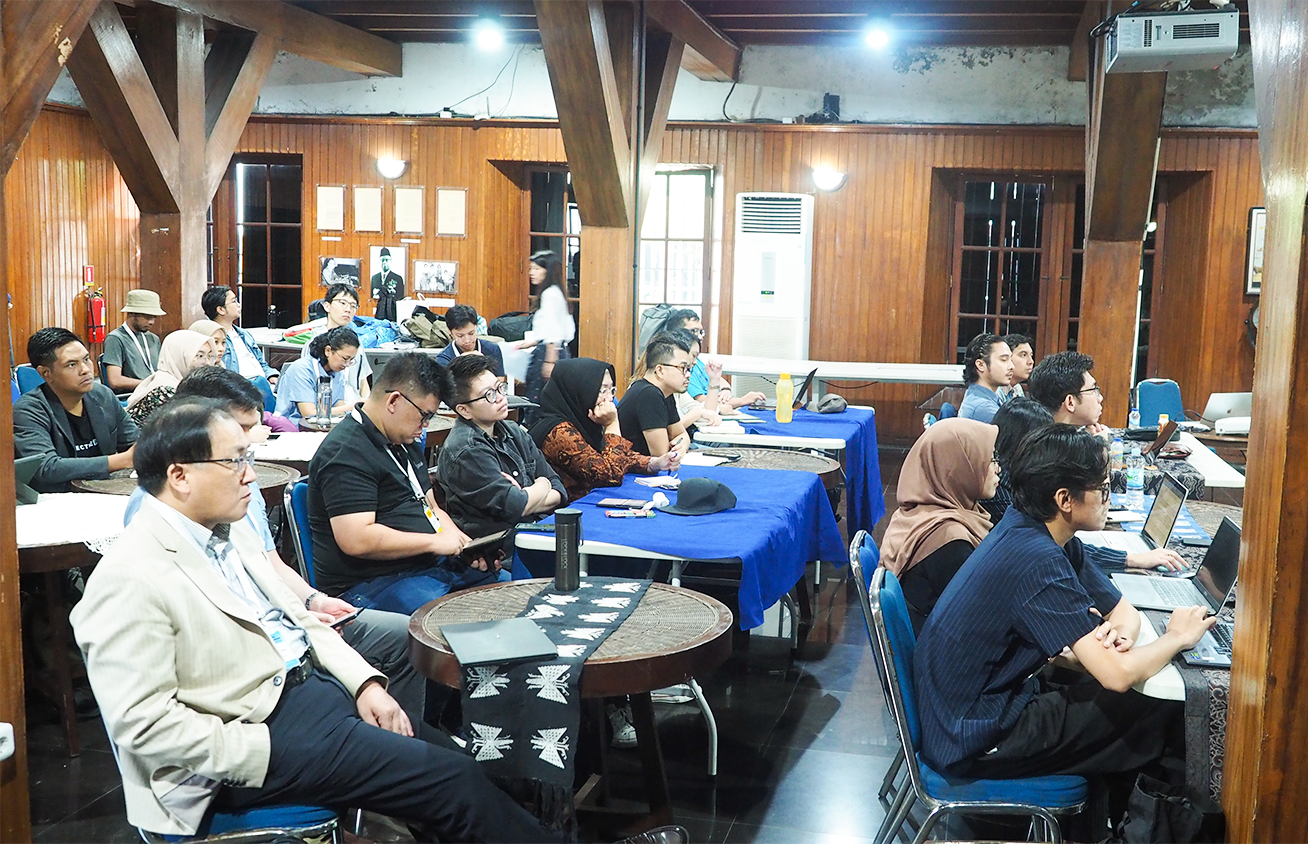
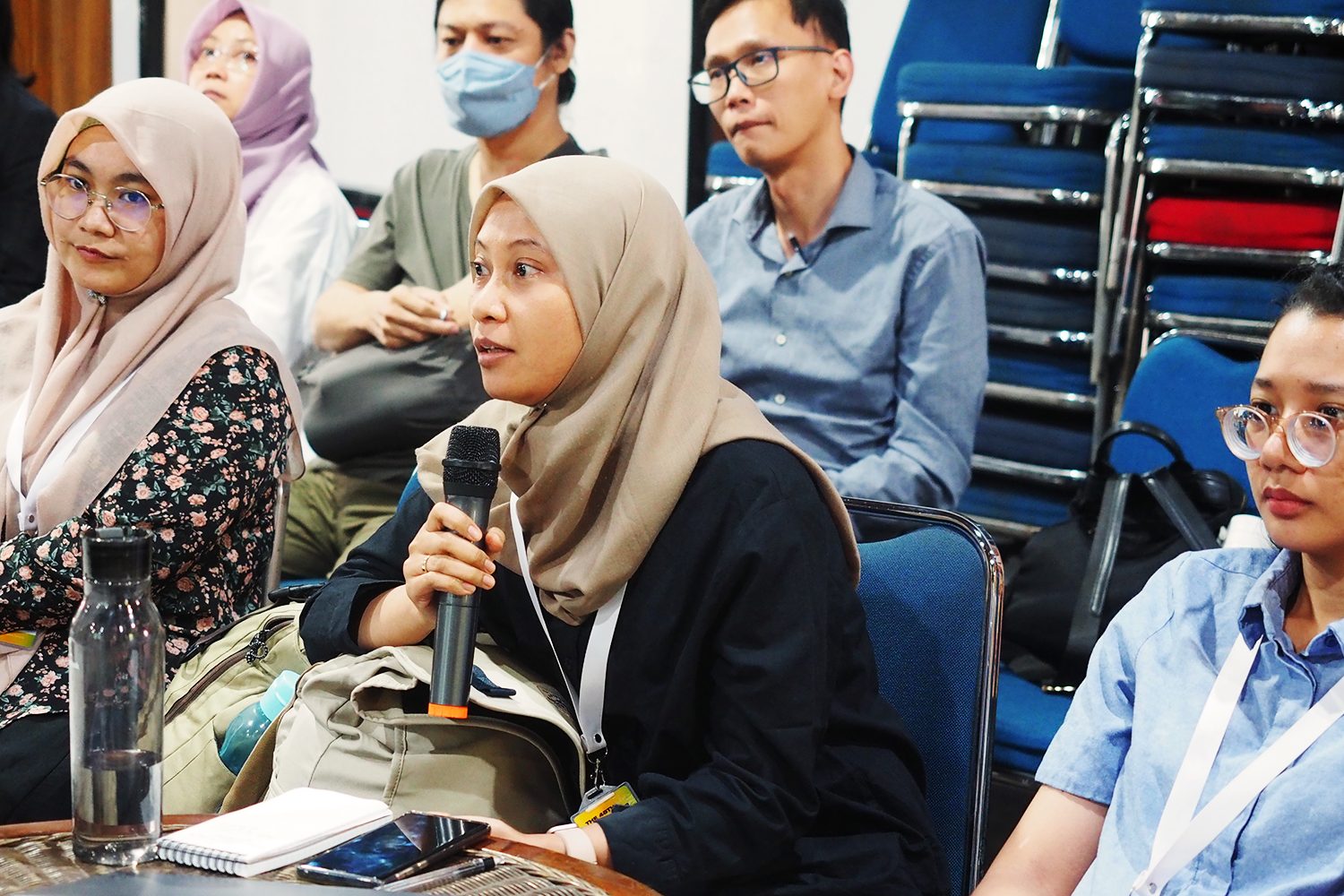
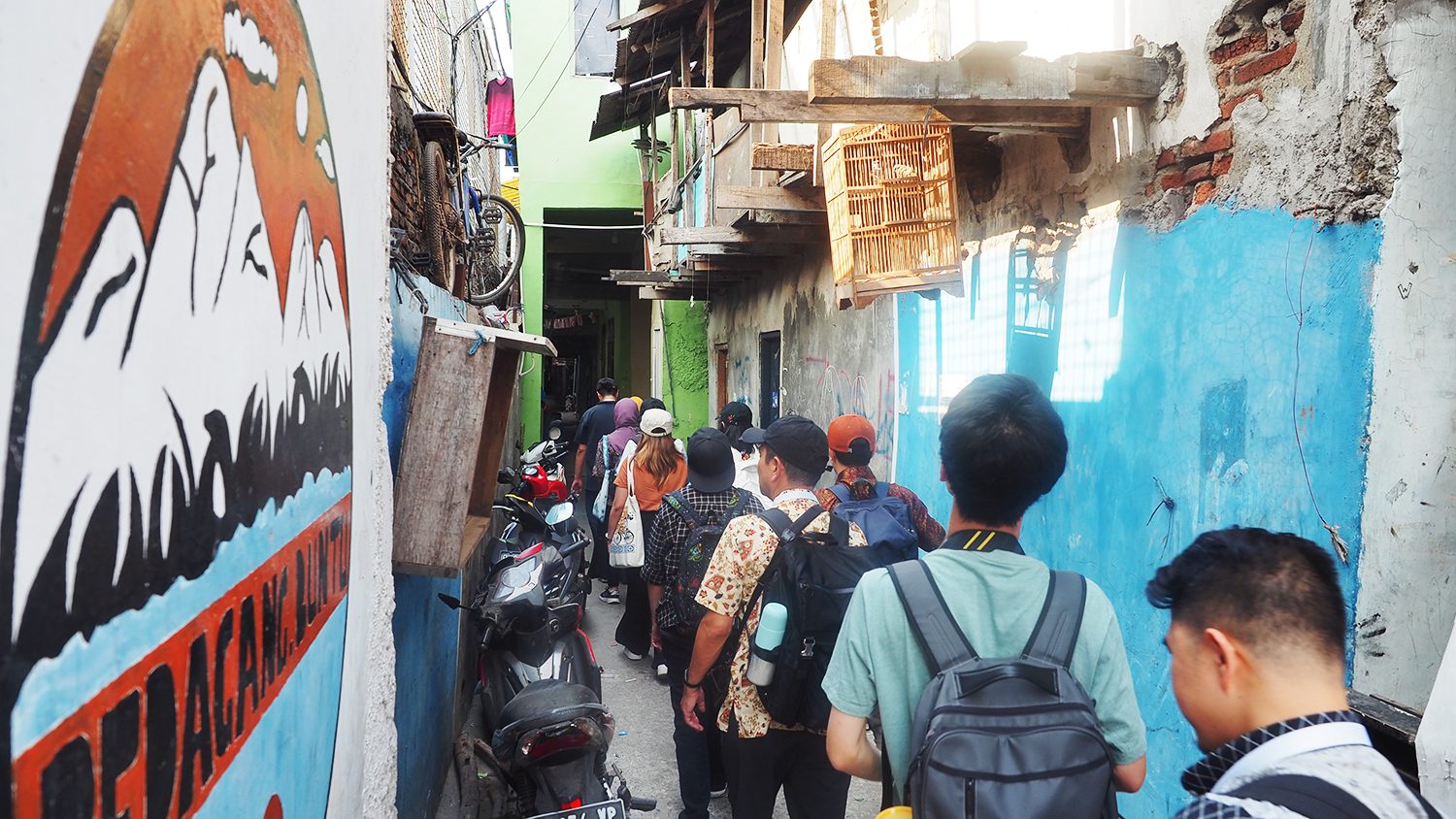
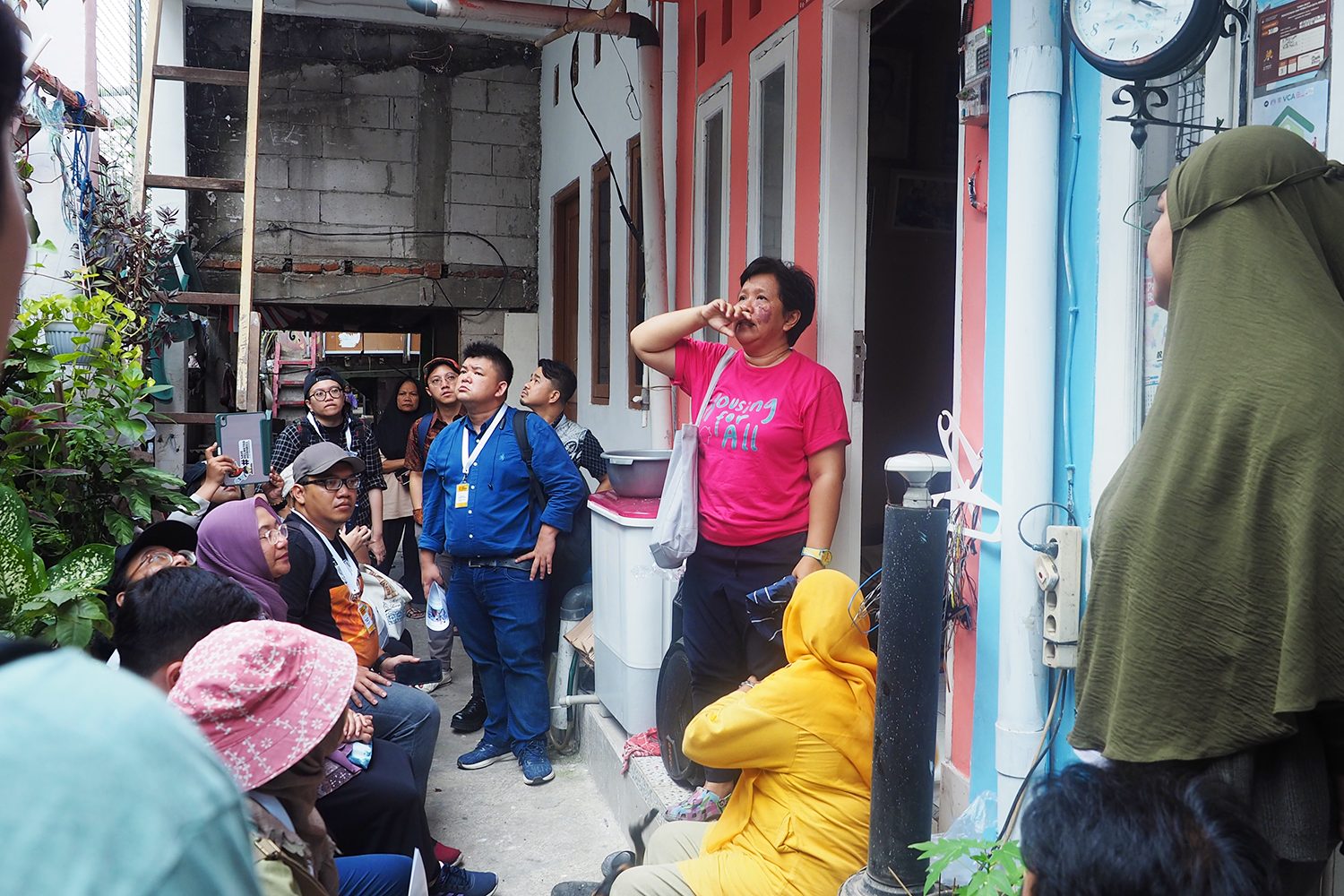
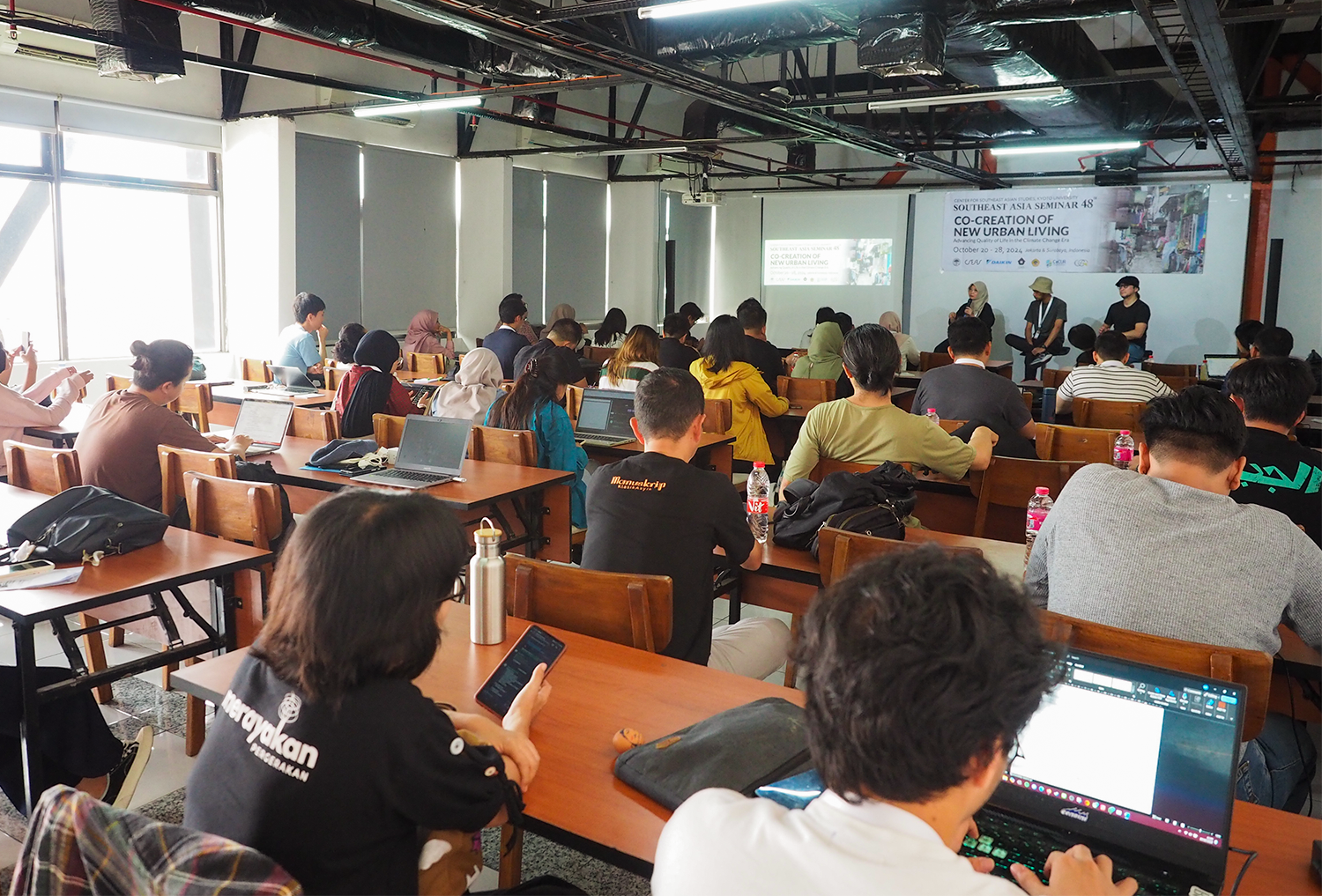
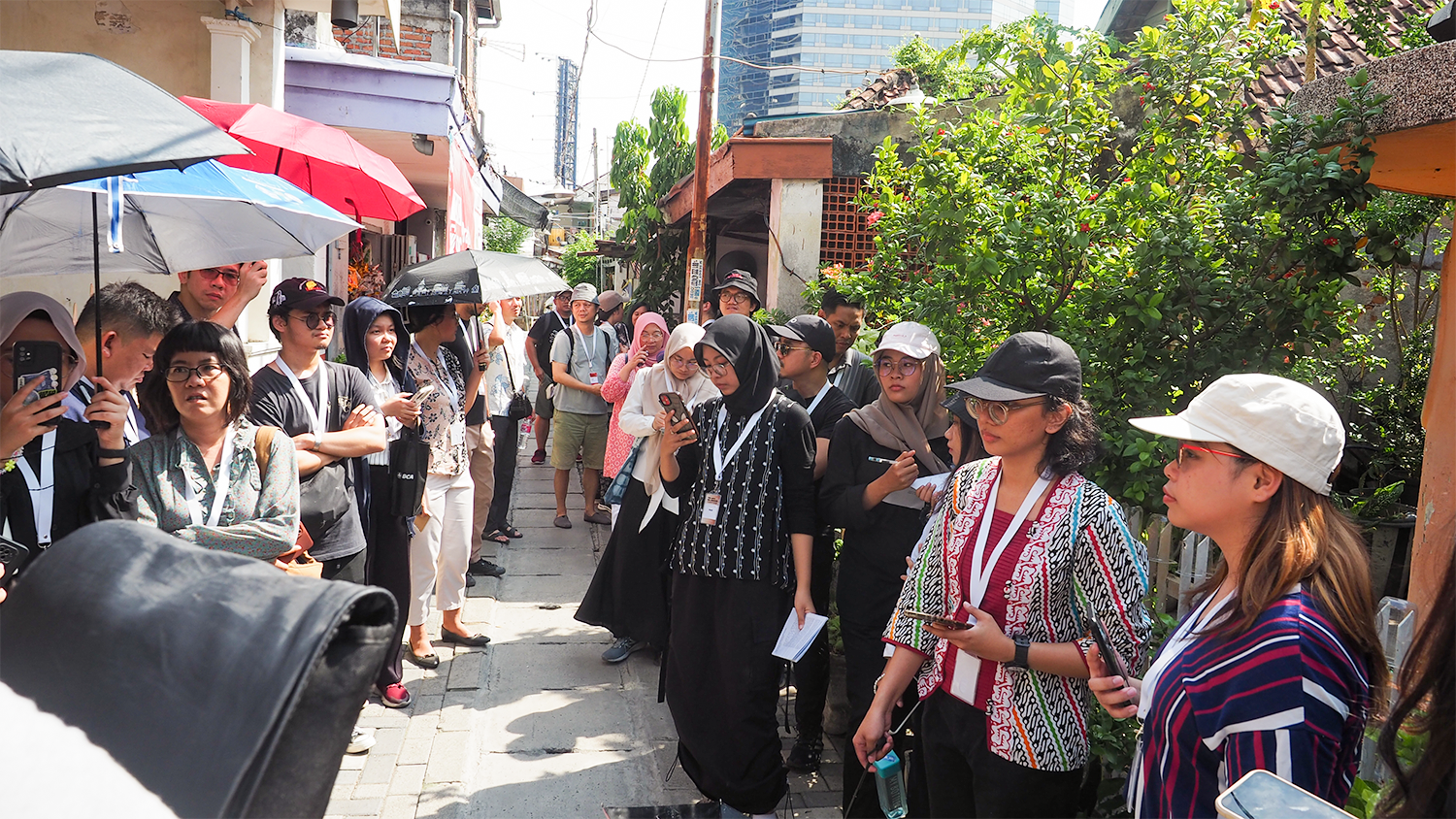
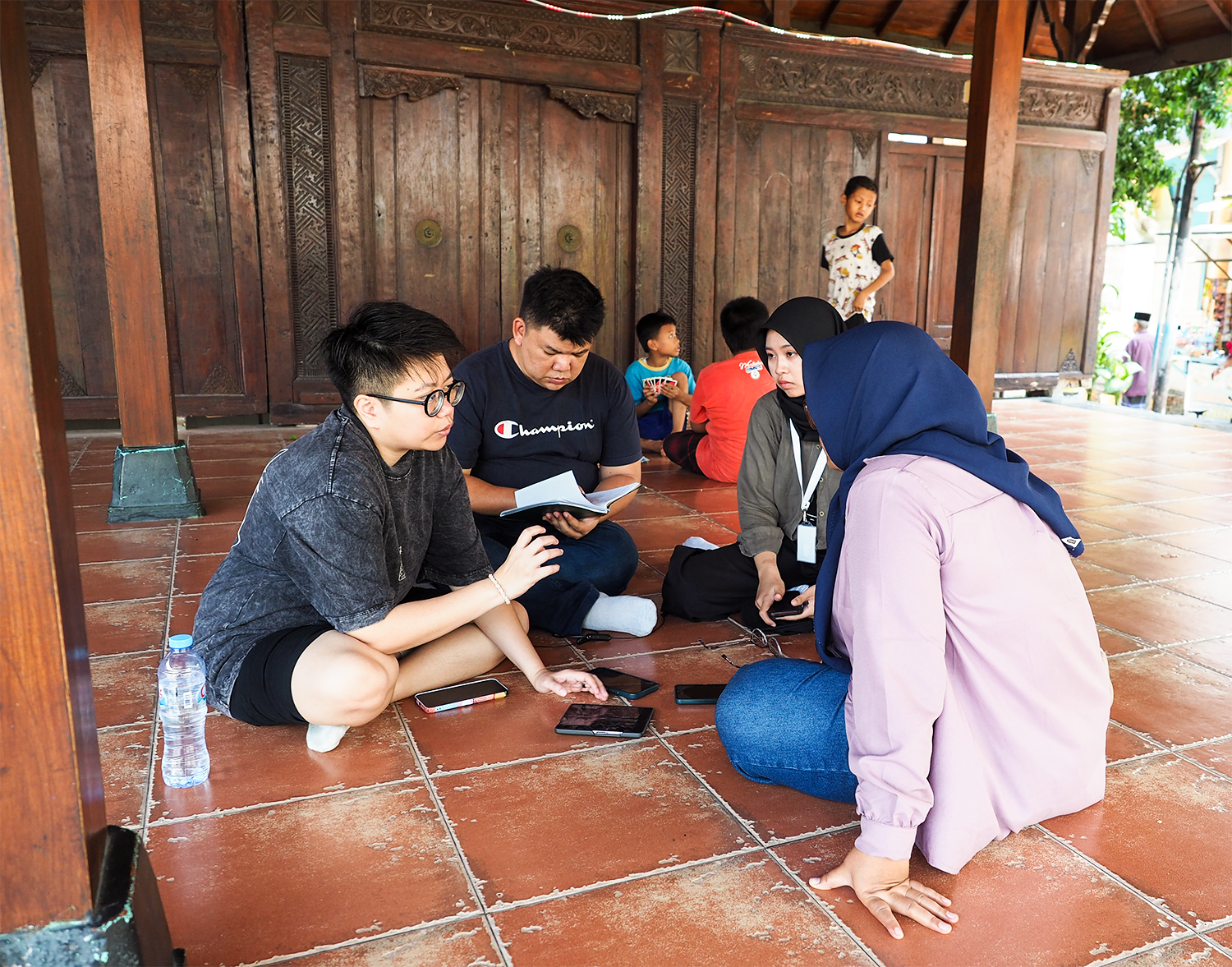

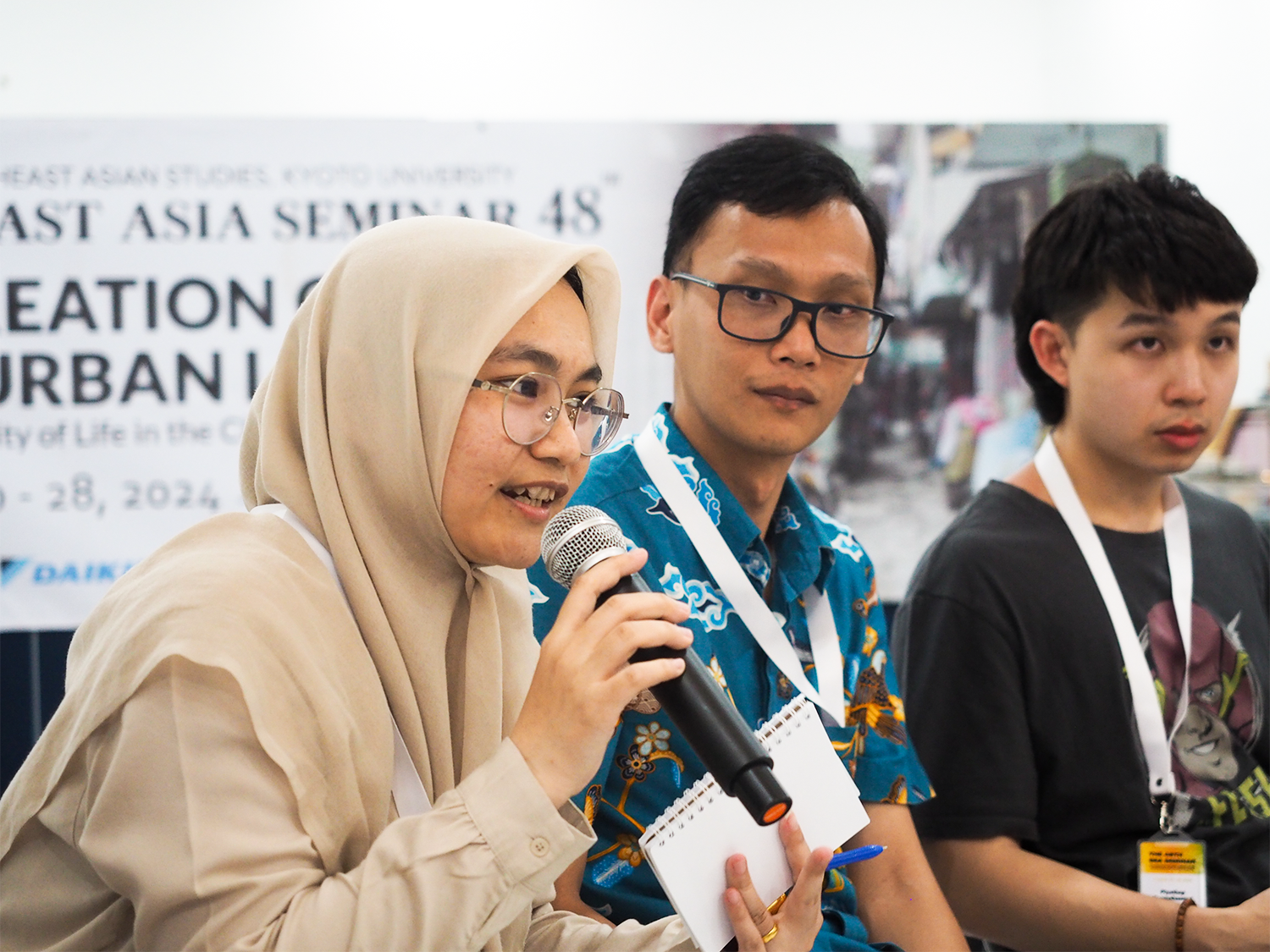
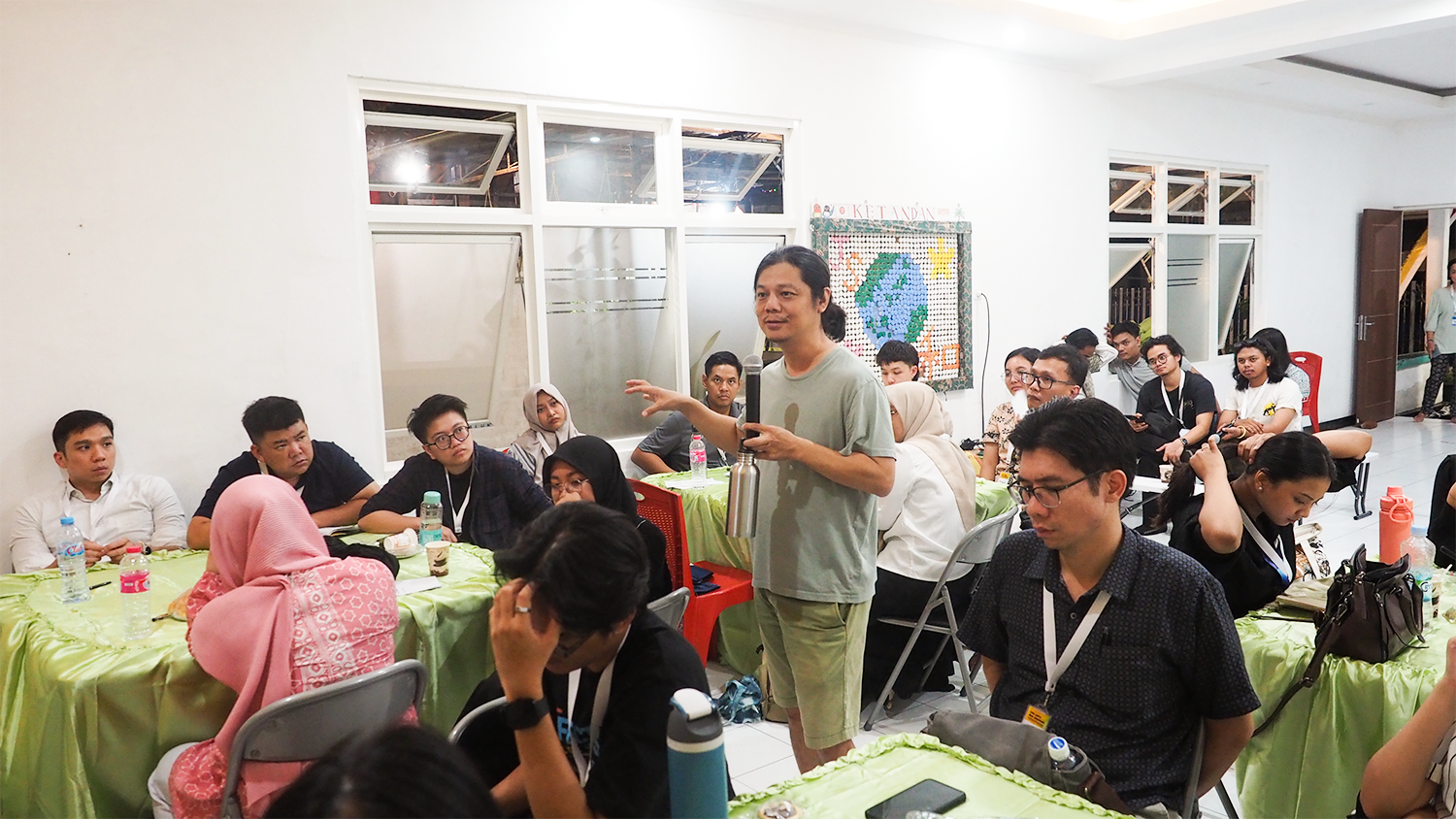
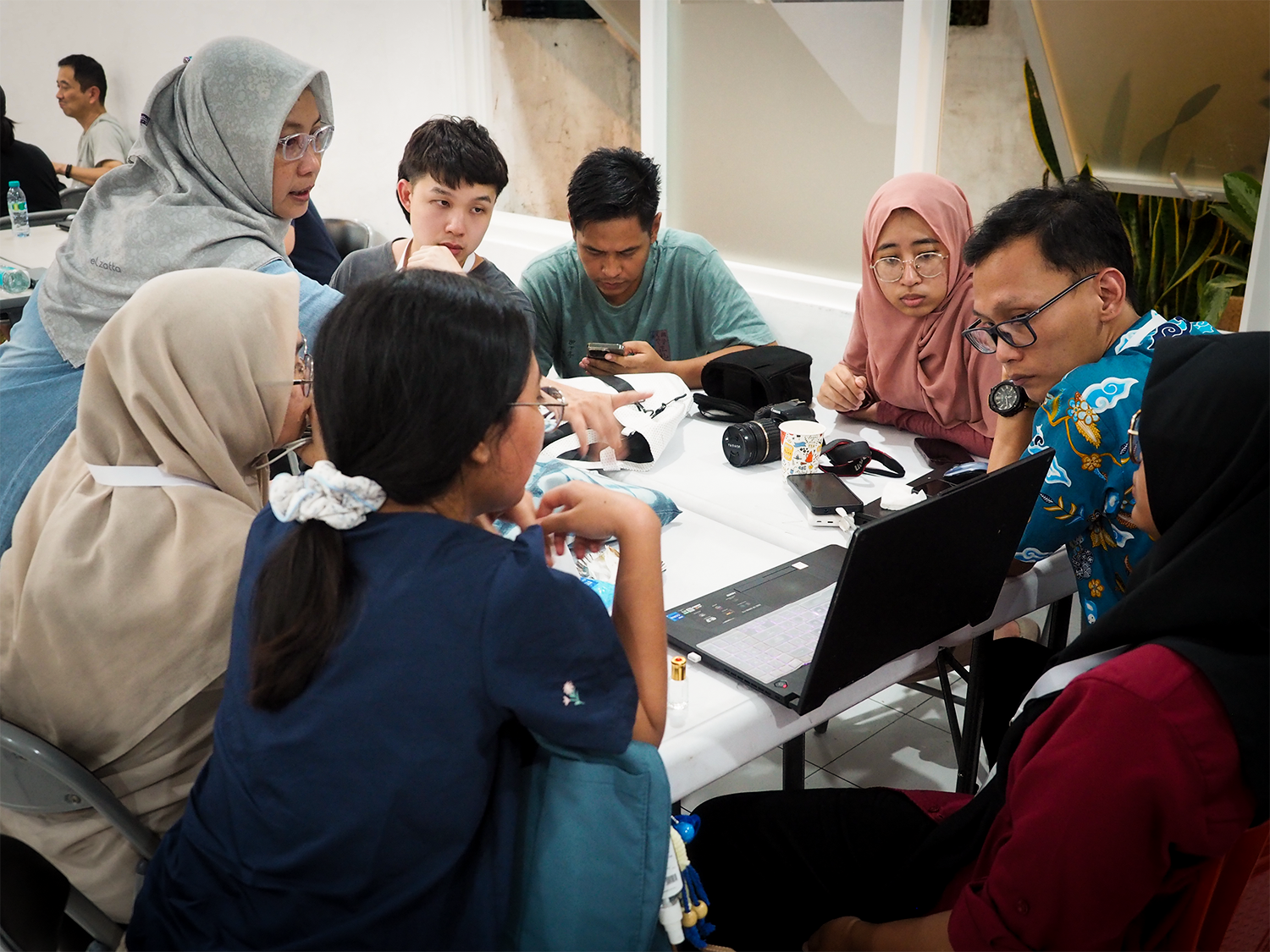
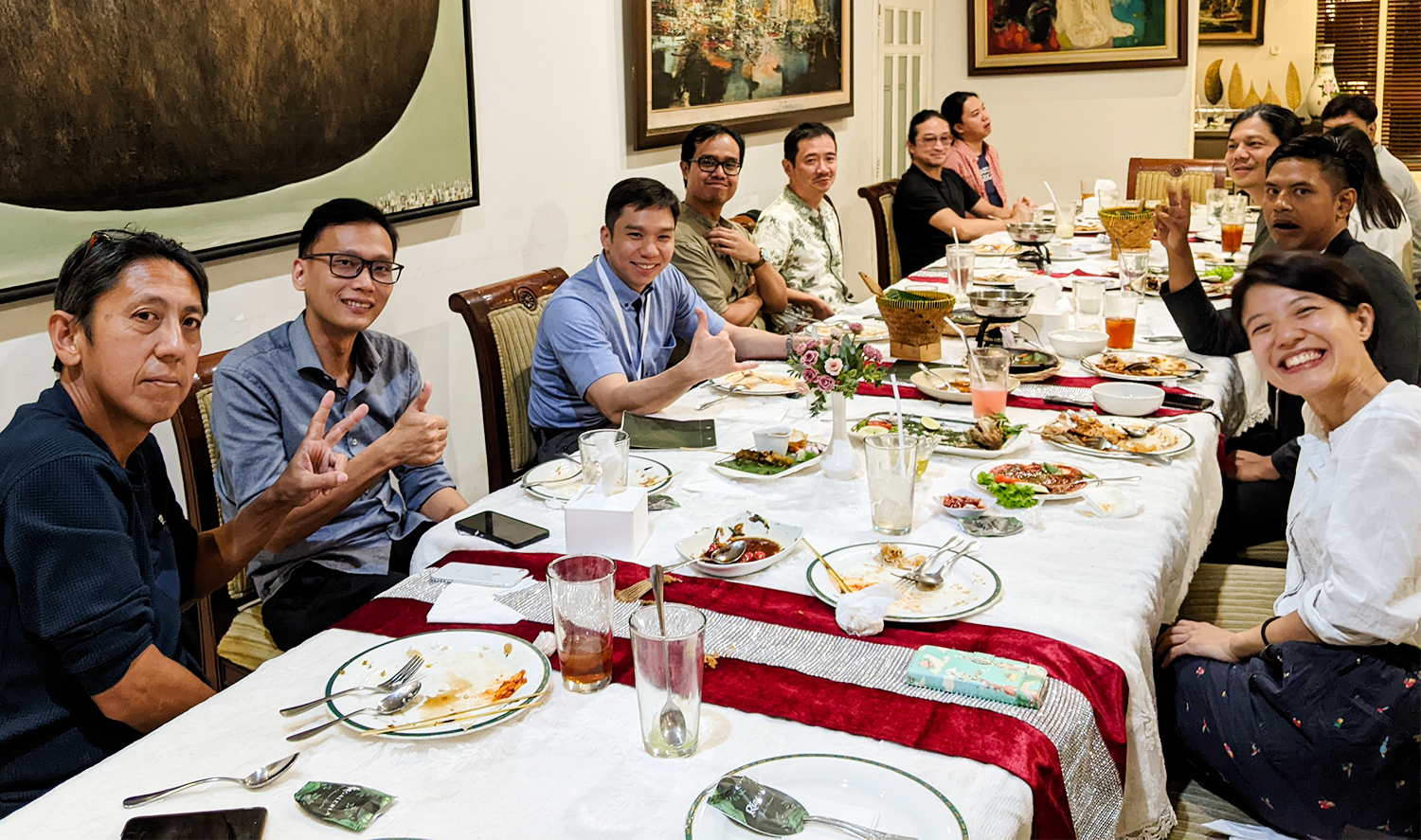
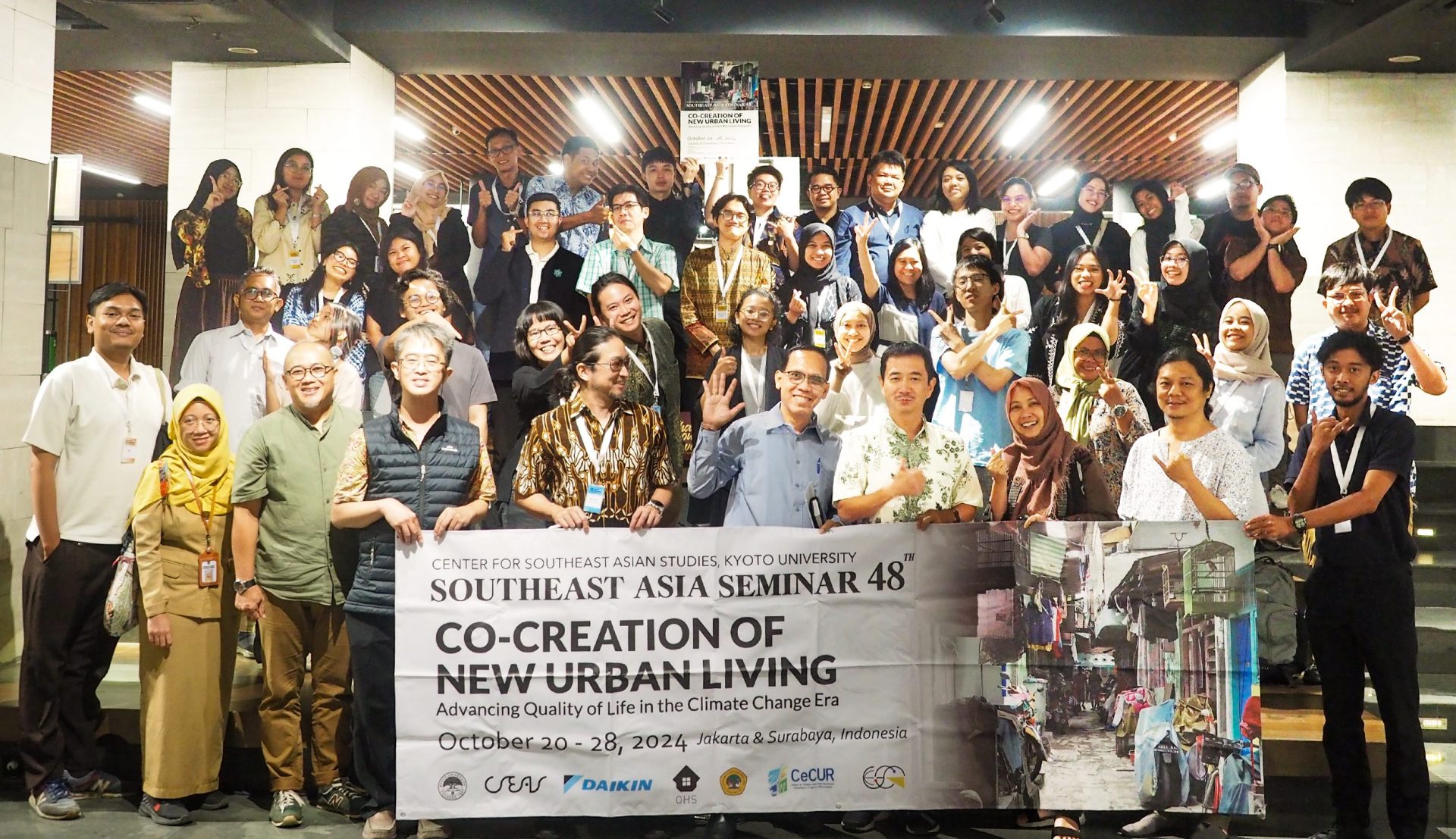
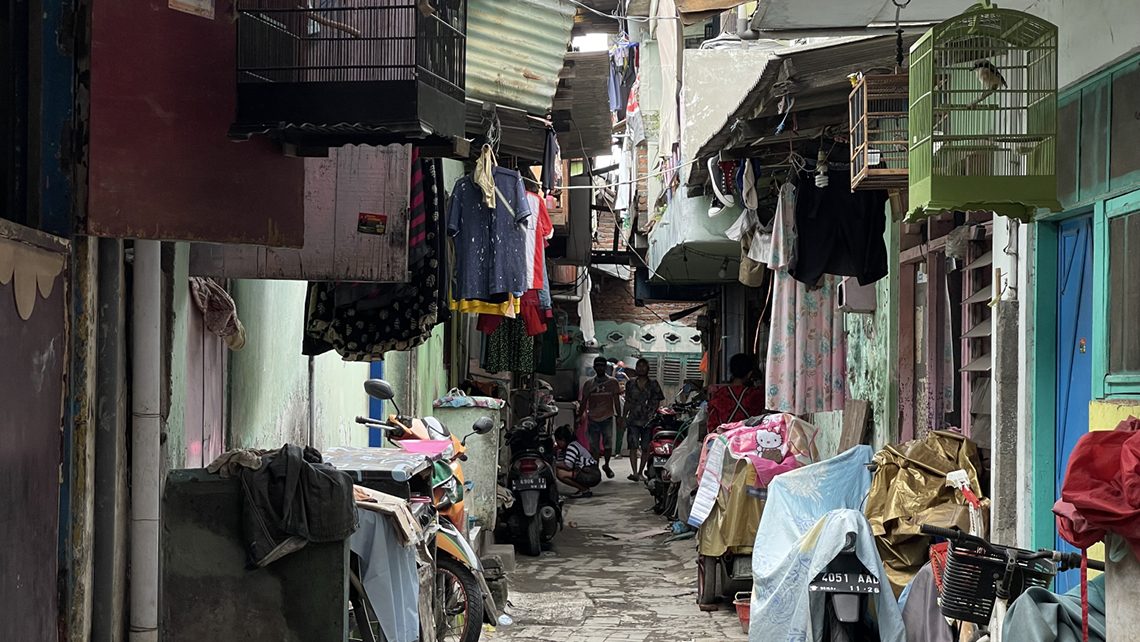
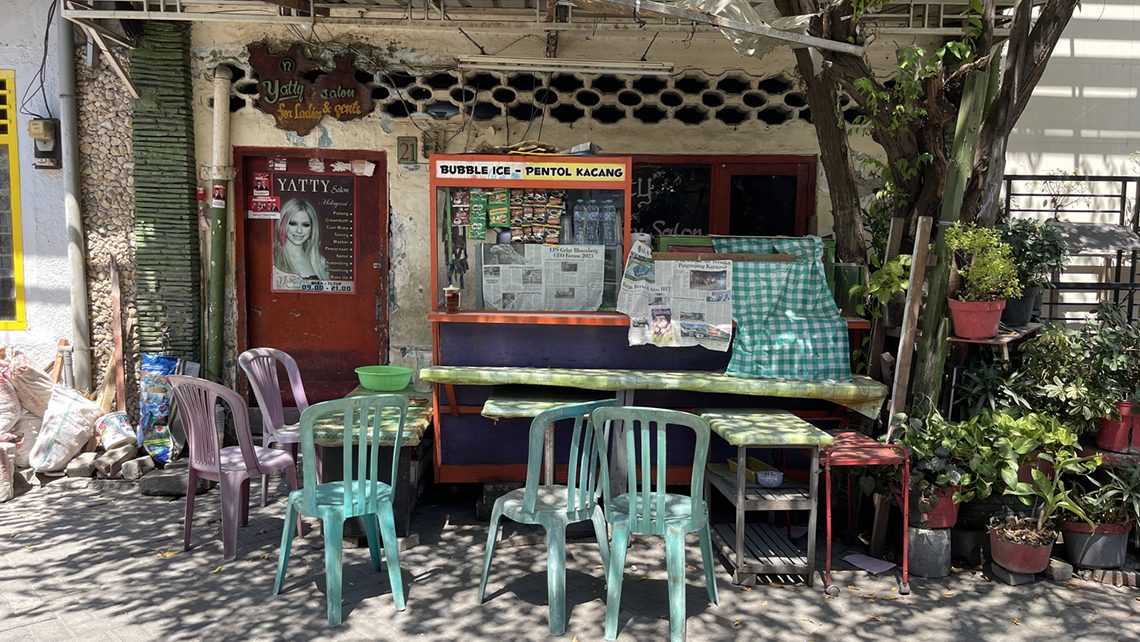
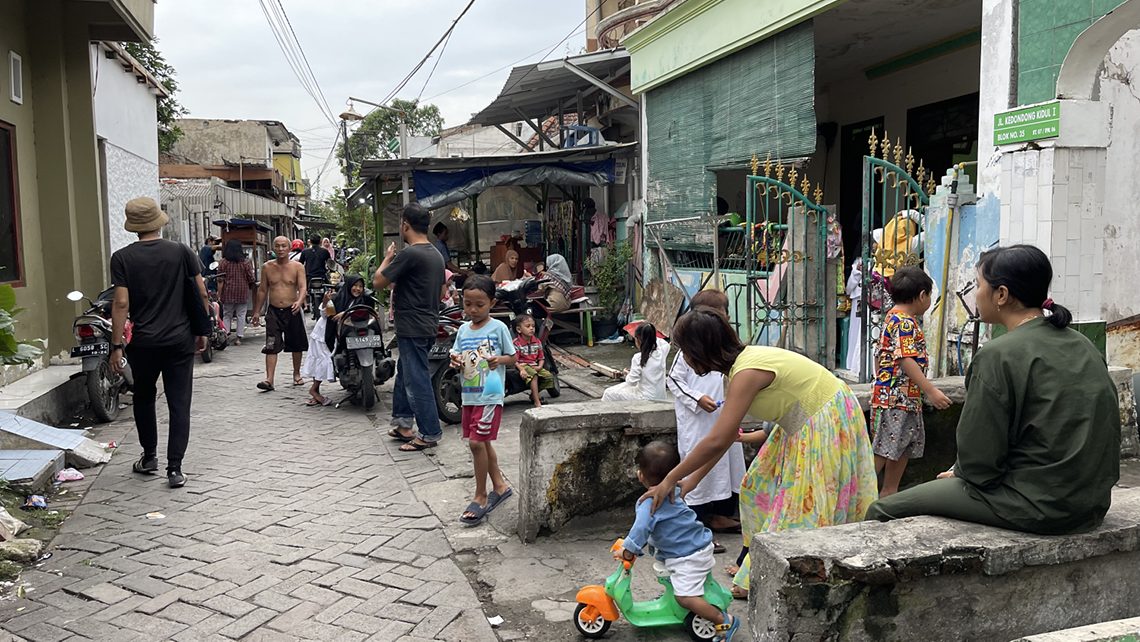
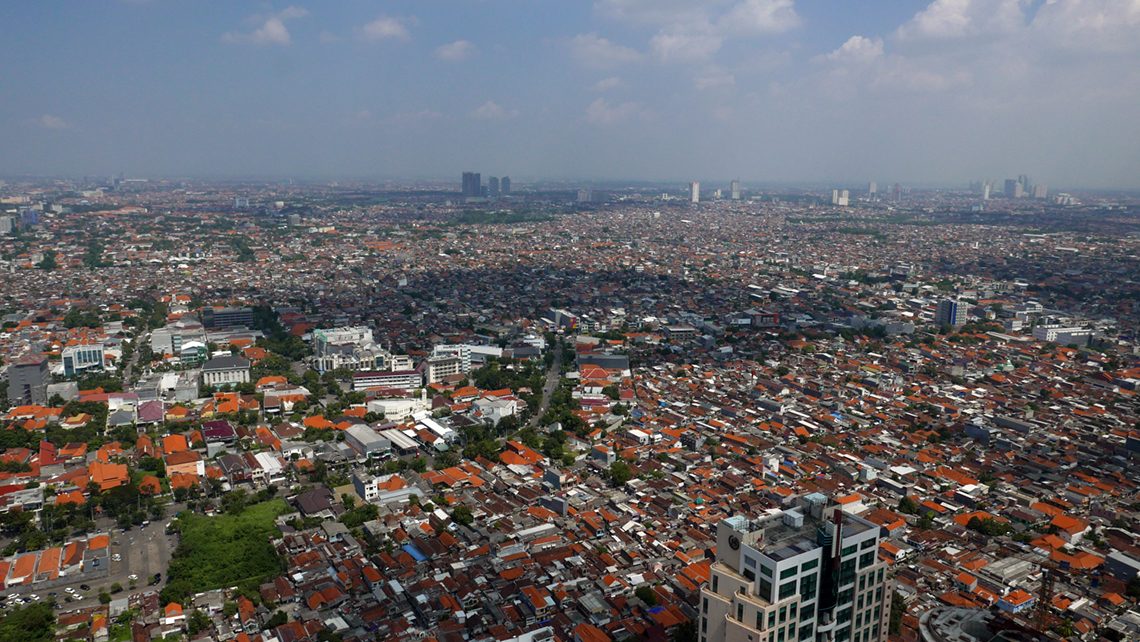
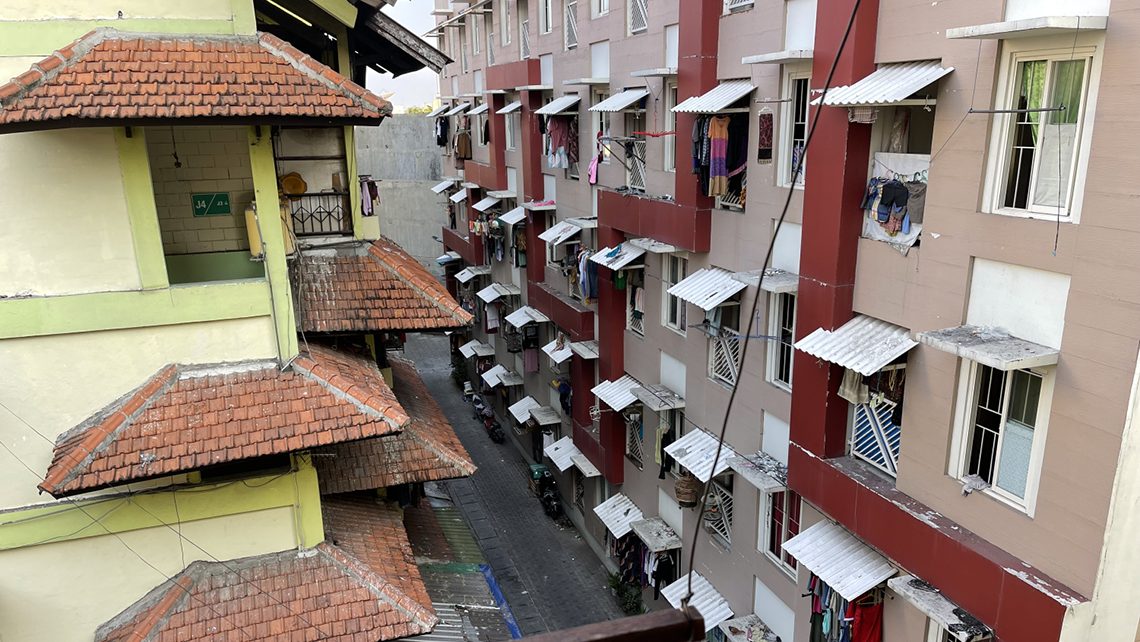
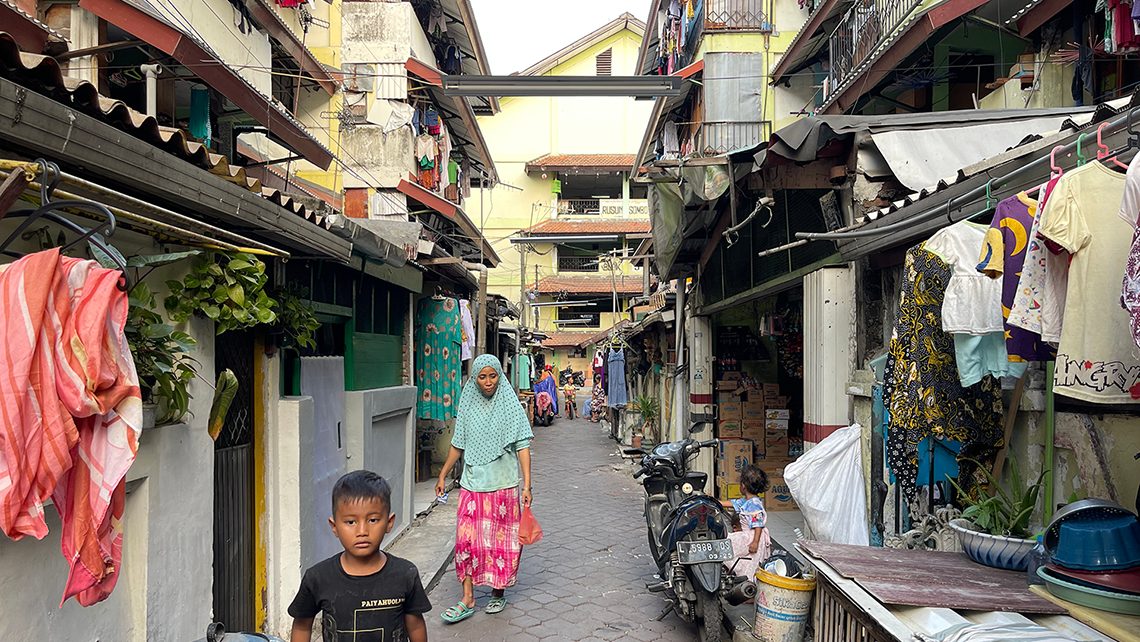
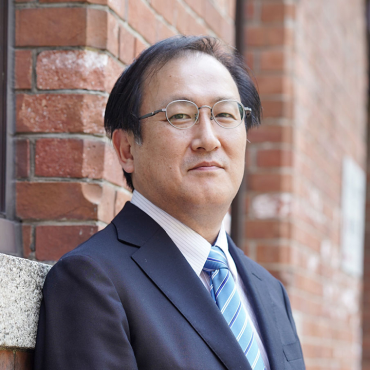
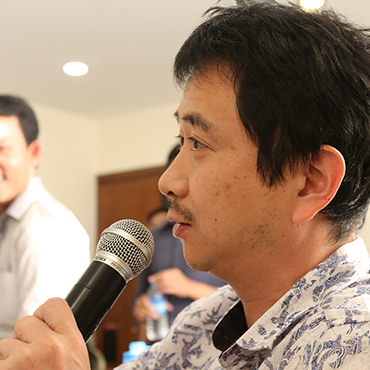
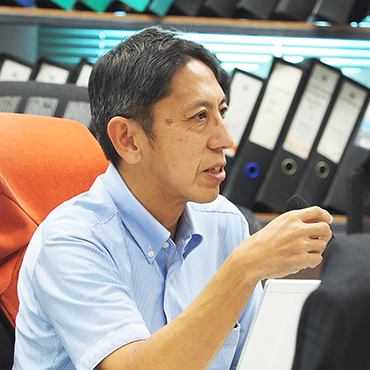
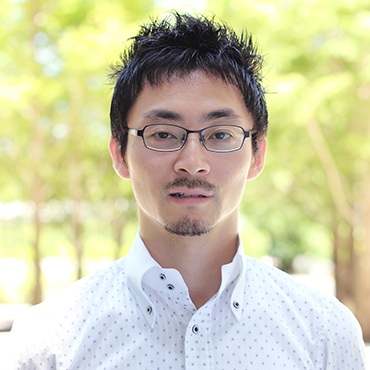
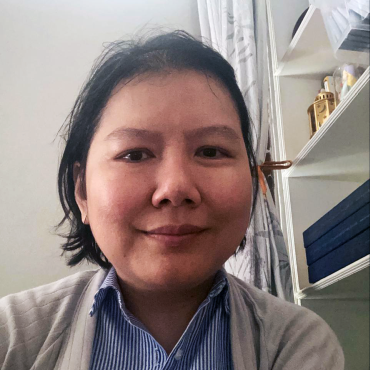
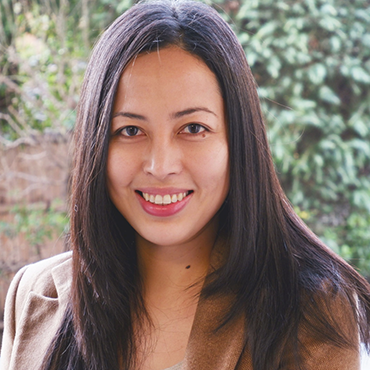
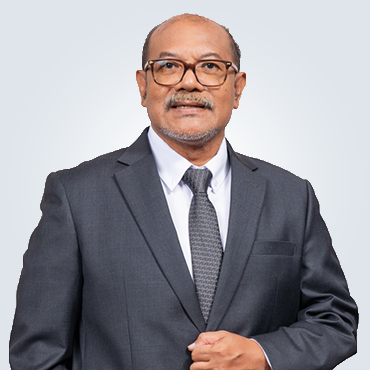
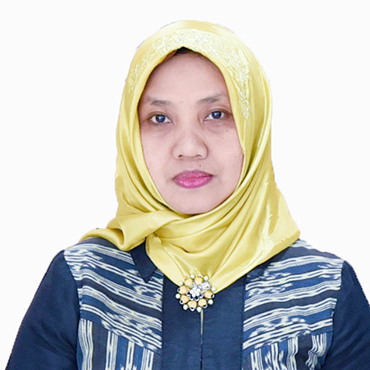
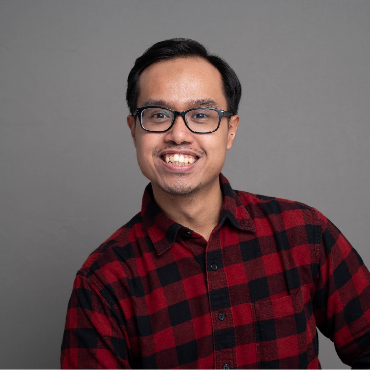
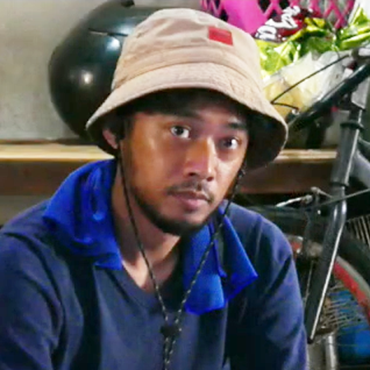
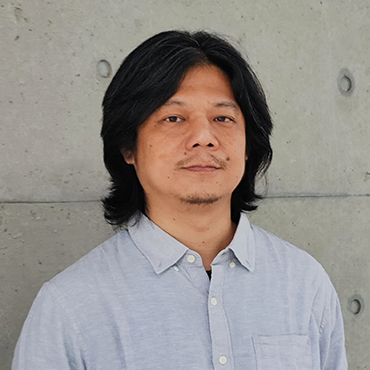
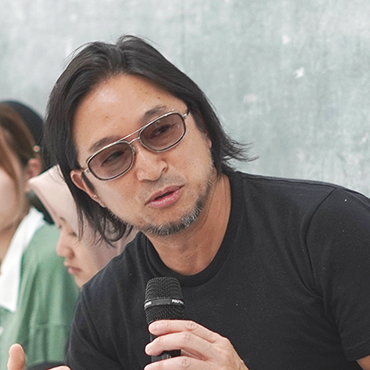
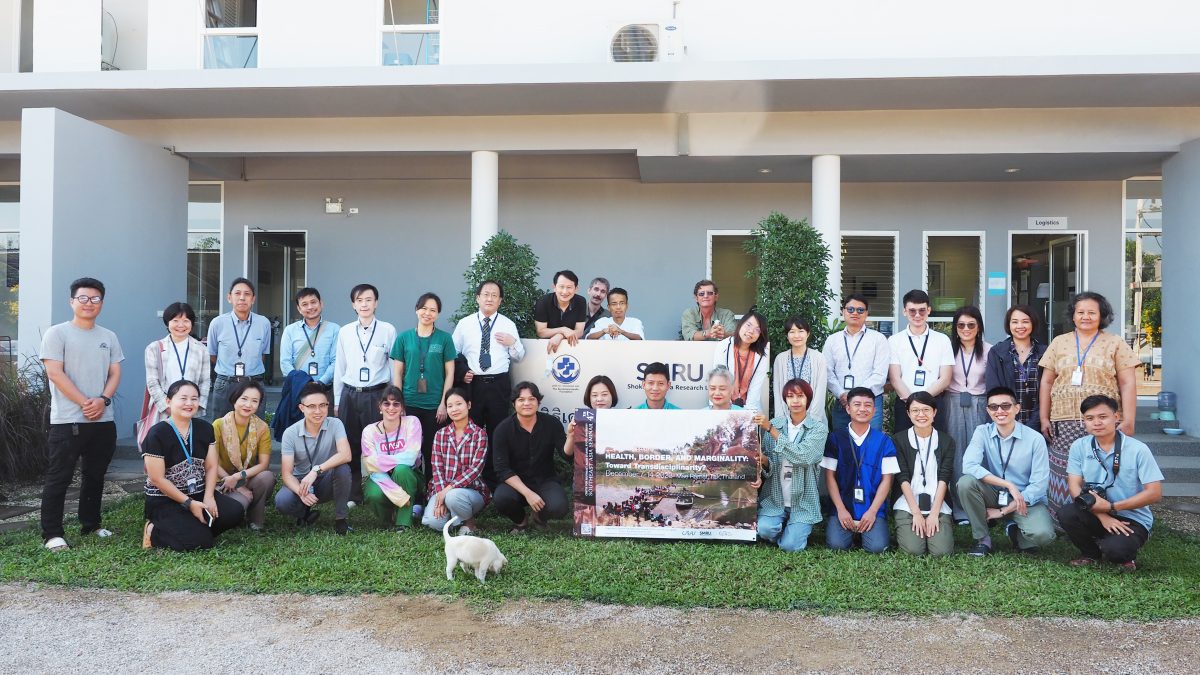
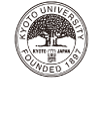





The 48th Southeast Asia Seminar
Organized by
Center for Southeast Asian Studies (CSEAS), Kyoto University
Supported by
DAIKIN Industries, LTD.
Co-organized by
Operations for Habitat Studies (OHS)
Center for Climate and Urban Resilience (CeCUR), University of 17 Agustus 1945 (UNTAG) Surabaya